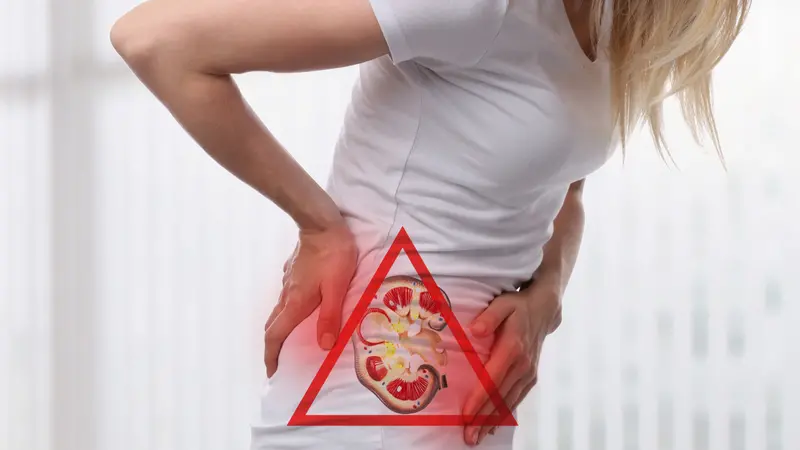

Chronic Conditions and Diseases

Chronic Conditions and Diseases
Prevent Kidney Stones with Diet
Diet can be an effective first line of defense against kidney stone formation. While medications, genetic disorders, and medical conditions can all be components of kidney stone formation, diet is also a critical part for most patients.
The most common kinds of kidney stones are calcium oxalate stones. Diet recommendations to avoid kidney stones vary based on the type of stone, as well as underlying health issues such as diabetes or osteoporosis. However, there are seven general guidelines that are beneficial for most people who have had kidney stones.
Hydrate
The best way to prevent waste products in fluid beginning to crystallize is to drink more fluids. Most people don’t drink nearly enough fluid, and the goal should be at least about 10 cups per day. Water is the best choice, but most drinks (including coffee and alcohol) count. The exceptions would be sugary drinks (e.g., soda), which research suggests may increase the risk of kidney stones.
Eat Calcium-Rich Foods
Contrary to popular belief, people with calcium oxalate stones rarely need to eliminate dairy. Calcium is needed in the diet to support strong bones and muscles, and calcium needs are best met through diet, not supplements, unless otherwise recommended by your doctor.
Reduce Sodium Intake
Higher salt levels in urine promote the formation of kidney stones. Salt should be limited to 1,500—2,000 mg per day (about a half teaspoon of salt).
In addition to not salting your food, make sure to pay attention to how much sodium is in prepared foods—even healthy ones. This includes cottage cheese, salad dressing, cereal, bread, soups, pasta sauces, and snacks.
Add Lemon and Lime Juice to Water
Add lemon or lime into your water whenever you can, and aim for a total of a half cup of lemon or lime juice per day.
Lemon and lime juice contain citrate, which neutralizes acid in urine and can prevent calcium stones from forming. Uric acid crystals form and turn into stones in an acidic environment, and won’t form in an alkaline environment. High doses of citrate can actually dissolve uric acid stones.
Discuss Supplements with Your Doctor
Discuss any supplements you take with your doctor, as some common ones (vitamin C, turmeric, calcium) can increase the risk of kidney stones.
Other supplements like vitamin B6 and fish oil can help reduce the chance of getting them.
Rethink Some Oxalate-Rich Foods
Based on stone type and urine composition (as determined by a 24-hour urine test), additional dietary changes may also be needed.
If you have high oxalate content in your urine, your doctor may recommend avoiding oxalate-rich foods (e.g., rhubarb and spinach) or eating those foods with dairy, as the calcium binds to the oxalate and forces them into your feces rather than your urine.
Oxalates are in many healthy foods, including greens, beans, vegetables, and nuts, so be sure to consult a doctor to examine stone type and have a urine test to determine whether they should be restricted.
Limit Meat Intake
Animal protein (including fish, chicken, pork, and red meat) can lead to increased amounts of acid in urine, which can promote the crystallization of compounds that can turn into stones. High amounts of animal protein can also reduce citrate in your urine, which reduces the chance of stone formation.
You don’t need to completely eliminate meat from your diet, but try to scale back.
With a few dietary changes, you may be able to eliminate kidney stones.
REFERENCES
Cleveland Clinic. (2021, September 14). Diet do’s and don’ts to prevent kidney stones. https://health.clevelandclinic.org/kidney-stones-diet/


 By
By







